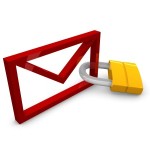[button link=”https://firstamendmentcoalition.org/2013/03/judge-plugs-private-email-loophole-in-public-records-law/” size=”small” bg_color=”#f21800″ border=”#faf208″ window=”yes”]Update![/button] San Jose Appeals email ruling
April 12, 2013/ The San Jose City Council this week voted unanimously to appeal last month’s court ruling that the Public Records Act applies to emails and text messages about city business even when sent or received by city employees on personal email accounts or using personal digital devices. According to John Woolfolk of the San Jose Mercury News, San Jose Mayor Chruck Reed explained:

…Such disclosure rules covering private devices and networks can be justified and managed on a small scale involving a few dozen elected officials and their staffs. But he said the council appealed out of concern that applying those rules throughout a city organization of 5,500 full-time employees — the practical effect of a decision that personal emails are subject to the California Public Records Act — would be invasive and burdensome.
“It’s about the scope of it,” Reed said. “I think it’s too broad. It sets up practical problems.”
FAC’s Executive Director Peter Scheer told the Mercury News that he’s confident the appeal will reaffirm the original ruling:
”That will force all California cities and counties to treat emails about government business as public records, regardless of the status or ownership of the email accounts or devices. What matters is the substance of the message — is it about government business or is it purely personal? — not the technology.”
Judge plugs ‘private email’ loophole in CA public records law
(March 20, 2013) Peter Scheer–In a big victory for open government, a Superior Court judge in San Jose has ruled that the state’s Public Records Act applies to government officials’ emails and texts about government business–EVEN IF those messages are sent or received using the officials’ private email or text accounts, rather than accounts belonging to the government.
The decision by Superior Court Judge James Kleinberg rejected San Jose’s argument that local governments can’t be held legally responsible for digital messages that reside in computer servers that they don’t own, lease, use or control. Judge Kleinberg reasoned that government officials, when emailing and texting about government business, are functioning as agents of the city. The officials’ ownership and control of the messages is imputed to the city.
The decision is consistent with FAC’s 2012 suit against the city of Auburn. That case ended in a settlement in which Auburn agreed to adopt policies requiring city officials, when emailing about city business using their personal email accounts, to “cc” the emails to a city mail server where they would be stored in a searchable archive.
In recent years more and more government officials have turned to personal email accounts as a back channel for official communications, believing that those communications are shielded from disclosure under the Public Records Act. The new decision, Ted Smith v. City of San Jose et al., suggests that belief may be misplaced.
Below is the full text of Judge Kleinberg’s decision.
——
[gview file=”https://firstamendmentcoalition.org/wp-content/uploads/2013/03/new-san-jose-email-decision.pdf”]


3 Comments
The way I understand it is that this is a Superior Court decision in San Jose and has not been tested by appeal. The way I understand it is that here in Riverside County the issue remains undecided and has to be argued in a case by case basis and is arbitrary until finally decided by the State Supreme Court? Although a win in San Jose where the decision bolsters the freedom of information there, until it is decided statewide we remain kinda stuck everywhere else. Please correct me if I am wrong.
That is basically right. However, San Diego public officials, who today exchange emails on their personal accounts, should realize that those emails very likely could be deemed public records in a future court decision relying on the San JOse decision. In other words, certainty in the secrecy of such communications has just evaporated throughout CA.
I guess my question lies in the details. Who gets to search a private email account to determine anything responsive to a request? Also, in the agency I am in, representatives keep a “folder” for govt related emails, but they are ones who control what goes into that folder. Can’t they just hide or delete any emails they want? Thank you.
Comments are closed.